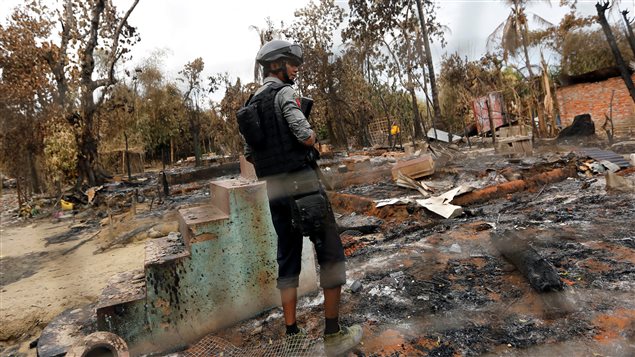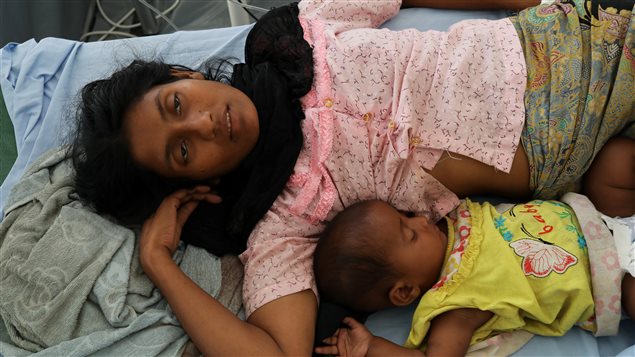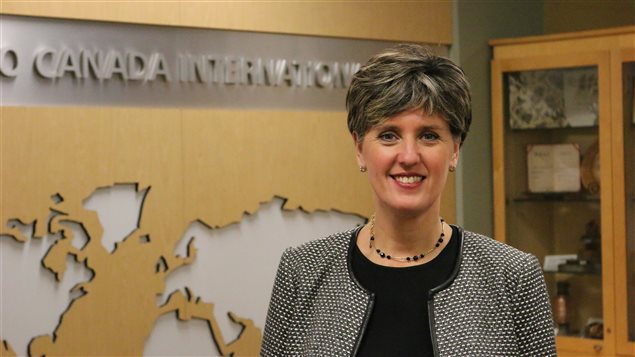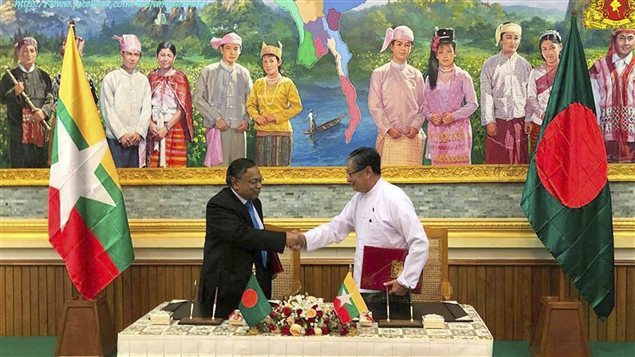Humanitarian groups are speaking out against a “dangerous” and “premature” deal struck between Myanmar and Bangladesh to repatriate Rohingya refugees who have fled a campaign of violence described by the United Nations as a “textbook example of ethnic cleansing.”
Myanmar, also known as Burma, announced the agreement Thursday but didn’t provide details on how many Rohingya refugees who have fled a brutal crackdown in the country’s Rakhine state would be allowed to return home.
More than 620,000 Rohingya have fled from Myanmar into Bangladesh since Aug. 25, when Burmese security forces began what they called “clearance operations” following an attack on 30 police posts by a group of Rohingya militants.
‘Simply unthinkable’
Bangladesh officials said the repatriations will start within two months.
“There can be no safe or dignified returns of Rohingya to Myanmar while a system of apartheid remains in the country, and thousands are held there in conditions that amount to concentration camps,” Amnesty International’s Director for Refugee and Migrant Rights Charmain Mohamed said in a statement. “Returns in the current climate are simply unthinkable.”

Given the extreme levels of violence refugees have experienced, returns in the near future will be extremely challenging, CARE International said in a statement.
“Most of the refugees who have fled Myanmar in the past three months are traumatized and have lost everything, including family members and homes,” CARE Canada spokesperson Darcy Knoll said in a statement.
“Most have no home to return to as entire villages were burnt down.”
Consulting refugees
CARE urges both governments to ensure these challenges are recognized in ongoing negotiations and that the key principle of ‘non-refoulement’ is upheld, Knoll said.
One way of doing this is to consult with affected communities as processes are developed, as well as keeping both the national and international humanitarian community informed of the support that will be needed to ensure safe, successful returns.
Myanmar and Bangladesh have clear obligations under international law not to return individuals to a situation in which they are at risk of persecution or other serious human rights violations, said Mohamed.

“The fact the United Nations and the international community have been completely sidelined from this process does not bode well for ensuring a robust voluntary repatriation agreement that meets international standards,” Mohamed said.
“At a minimum, Rohingya should be able to continue to seek asylum in Bangladesh, while those who do not want to go home must not be forced to.”
‘A good thing in principle’
Canada’s International Development Minister Marie-Claude Bibeau said the agreement was a good thing in principle but that several conditions must be met before Rohingya refugees are able to return to Myanmar.
“We haven’t seen the terms of the agreement, but we hope we would see what was recommended in the Kofi Annan report: that the rights of the refugees would be respected; that they would be going back voluntarily,” Bibeau said, speaking to reporters following her three-day visit to Bangladesh, where she also visited Rohingya refugee camps in the Cox’s Bazaar area on the border with Myanmar.
The office of Myanmar leader Aung San Suu Kyi said Thursday’s deal follows a formula set in a 1992 repatriation agreement where the Rohingya were required to present residency documents, which few have, before being allowed to return to Myanmar.

Bibeau said many of the Rohingya refugees she spoke to told her that they would be willing to go back to Myanmar but only if their basic human and property rights were protected.
“They want to have the right to work, they want their kids to go to school, this is what they’ve been telling me,” Bibeau said.
Canada has already contributed over $25 million to the UN and humanitarian agencies working on the frontlines of the Rohingya refugee crisis.
In late October, Ottawa also announced the launch of the Myanmar Crisis Relief Fund, pledging to match dollar for dollar donations made by individual Canadians to humanitarian organizations working to support Rohingya refugees.
The pledge drive, which aims to raise funds for the Humanitarian Coalition, an umbrella group of seven Canadian humanitarian NGOs, and other charities working to help Rohingya refugees in Bangladesh ends on Nov. 28.








For reasons beyond our control, and for an undetermined period of time, our comment section is now closed. However, our social networks remain open to your contributions.